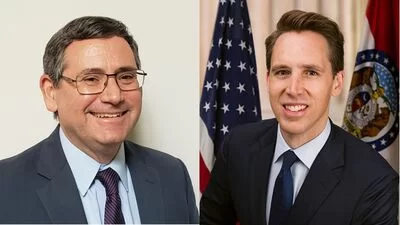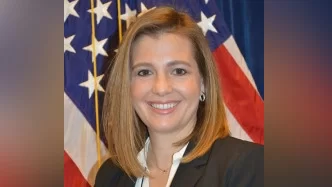Connie Farrow, executive director, Patients Come First - Missouri, left, and Dr. Anthony DiGiorgio, senior affiliated scholar, Mercatus Center at George Mason University | PatientsComeFirst.com / Mercatus.org
Connie Farrow, executive director, Patients Come First - Missouri, left, and Dr. Anthony DiGiorgio, senior affiliated scholar, Mercatus Center at George Mason University | PatientsComeFirst.com / Mercatus.org
Connie Farrow, executive director of Patients Come First-Missouri (PCF-MO), said lack of transparency in the federal 340b health care program is a “known concern.”
Her comments come after a national health care analyst said patients served by hospitals participating in the program should be concerned the program’s drug savings aren’t being passed along to them.
“The 340B program was intended to help the most vulnerable citizens get access to medicines and care when they are sick by providing entities with discounted drugs,” Farrow told Show-Me State Times. “We do think it’s fair to acknowledge that experts are expressing concern that many patients never receive the benefits of 340B, and that’s concerning.”
Established in 1992, the 340b program enables eligible hospitals and healthcare organizations to purchase outpatient medications at significantly discounted prices.
Hospitals participating in the 340B program can use the savings to fund essential services and programs, such as free or low-cost medication assistance, expanded access to healthcare, and community outreach initiatives.
Participating hospitals, however, “often extend their 340B discounts to clinics in well-off communities, where they can charge privately insured patients more than those on Medicaid,” reported the Wall Street Journal.
“In some cases, the program appears to be bolstering profits in well-off areas more than it is underwriting services in less-privileged neighborhoods,” said the Journal article.
Dr. Anthony DiGiorgio, a neurosurgeon and senior affiliated scholar at the Mercatus Center at George Mason University, told Show-Me State Times last week that drug discounts often aren’t passed along from the hospitals to the patients.
“Because the discount is mandatory, many drugs come out with higher list prices than they normally would, but patients pay that copay at the higher list price,” he said. “Patients are actually paying more than they otherwise would if the 340b program didn't exist.”
Sixty-nine Missouri hospitals participate in the federal 340B drug pricing program.
Farrow said patients of all economic backgrounds, including those served by those Missouri hospitals, “should be afforded the opportunity to receive the high-quality care they need, when they need it, especially as it is imperative to improving health outcomes in underserved Missouri communities.”
PCF-MO launched on March 18, and the organization lists 340b as one of its top issues.
“Access to affordable medicines is critical, especially to the impoverished in underserved communities that the 340B program was intended to help,” said Farrow. “Patients on the receiving end of this program already face significant barriers to care, including being able to afford treatments, residing in rural communities with fewer care facilities and various adverse health outcomes.”
She said if the 340b discounts aren’t reaching patients, then it’s not functioning as it was meant to and “it’s reasonable to suggest reform is in order.”
Farrow previously worked as a reporter for The Associated Press in Kansas City from 1993 to 2005. She also worked as the communications director for Missouri Coalition for Lifesaving Cures, and was a Reynolds Journalism Institute Fellow from 2012-2013.
Patients Come First has also launched groups in New Jersey and California.





 Alerts Sign-up
Alerts Sign-up